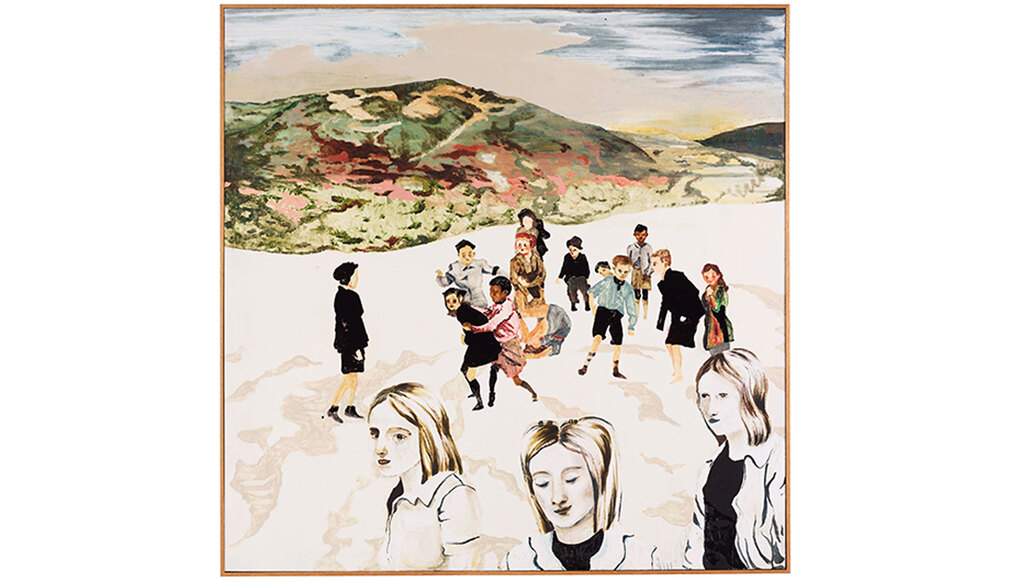Mamma Andersson at Contemporary Art & Design
Mamma Andersson, 'All They Had To Do Was Dream'
Mamma Andersson has been called a 'tradition bearer'. She is firmly rooted in a Swedish painting tradition represented by, for example, Hans Wigert, Lena Cronqvist and Dick Bengtsson. Her color treatment has many similarities with the latter's well-worked and patinated surfaces. However, Andersson has succeeded in creating a completely unique painterly language where she uses different techniques and types of paint to build up her images in different layers. The base can be acrylic paint, which dries quickly and is easy to apply to large canvases. The next layer can be oil paint applied with a brush and oilbars, a crayon of compressed oil paint and wax. Andersson is interested in the interplay between material and technique. Large opaque light surfaces in pastel colors are juxtaposed with details in velvety black.
Basically, Mamma Andersson sees herself as a landscape painter. She has painted mountains, trees, plains - often Nordic and especially northern nature. Motifs from Hälsingland in particular have inspired her and the desolate landscape symbolizes Andersson's home and origin.
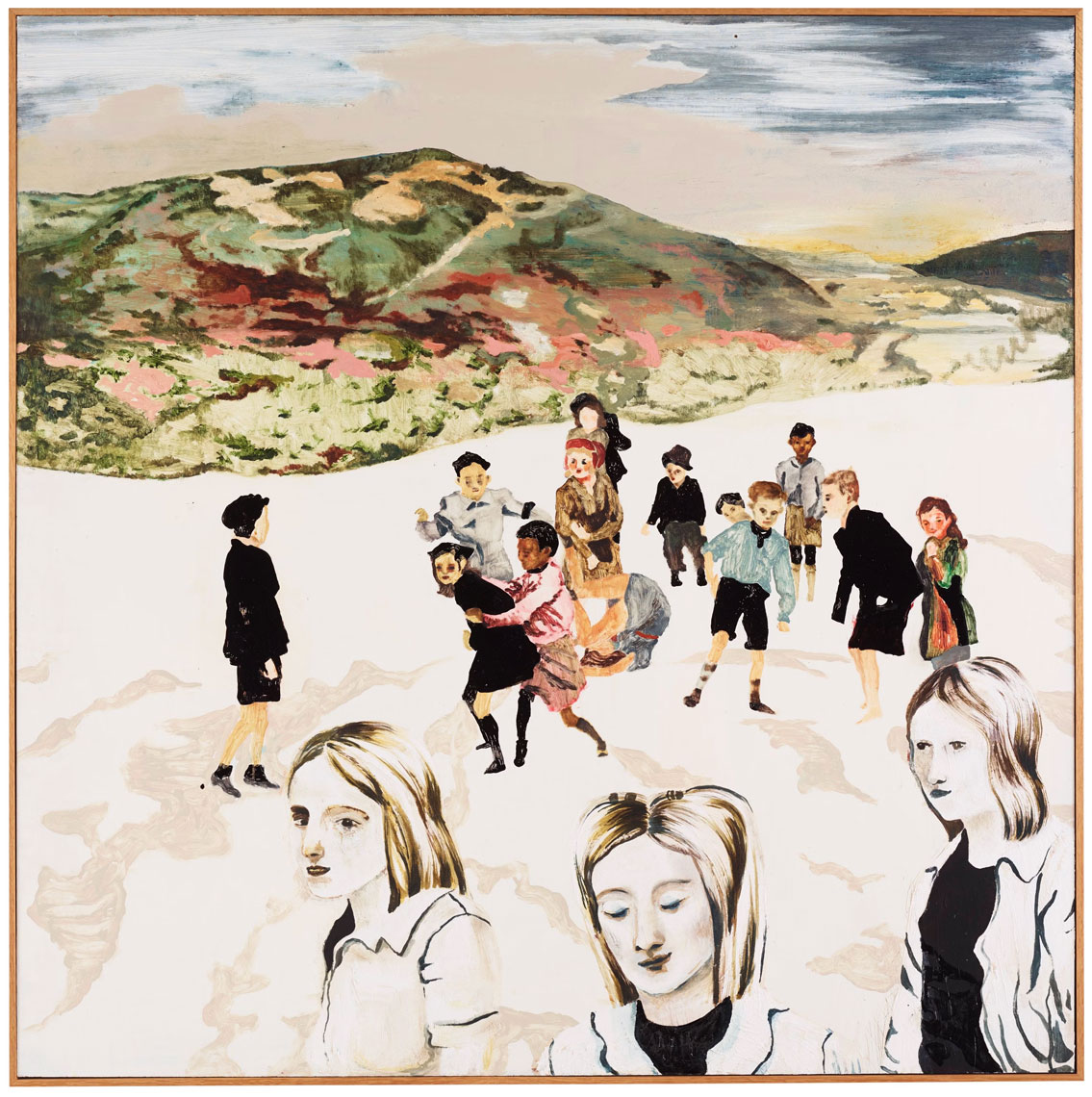
› Signed Mamma Andersson and dated 2001 verso. Oil on panel 122 x 122 cm.
“There is almost cinematic suspense to many of her paintings. A scenic sense of a place where something is going to happen or has just happened.”
– Marie Laurberg, Curator ’Mamma Andersson’, Louisiana, Denmark, 2014
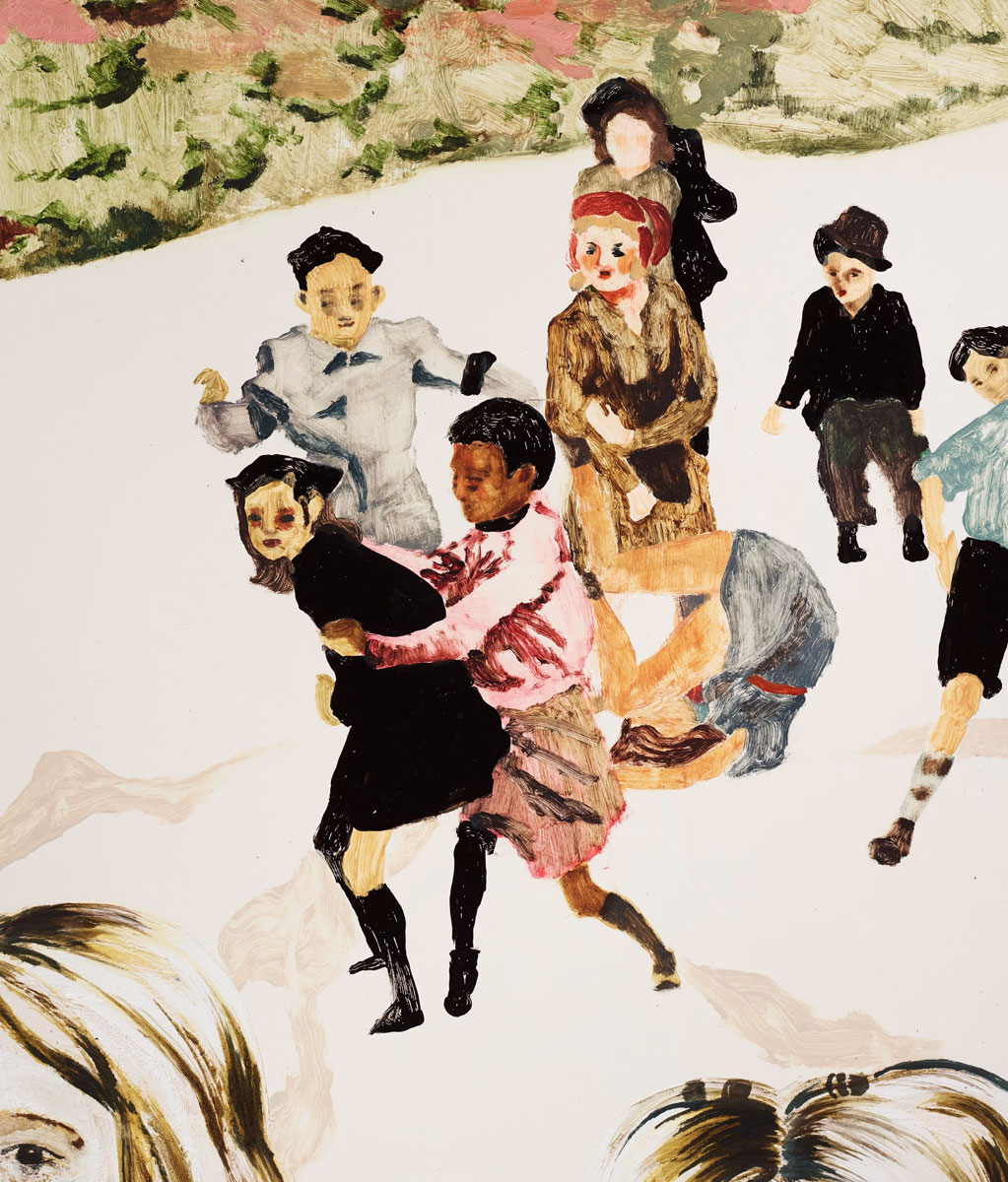
The painting 'All They Had to Do Was Dream' from 2001 has many common denominators with 'Skoldans' and 'Roliga Timmen' from the previous year. The theme is growing up and relationships, especially female relationships. What does it mean to belong to a group, and what does it mean to be left out? Andersson draws on her own experiences as a woman and combines these with inspiration from literature and art. Each painting can be said to be a self-portrait in some form. Andersson is always looking for inspirational images of places, timeless landscapes, architectural or historical images that can become the building blocks of her work. There are no time markers such as cell phones, power lines or other details that would tie the subject to a particular period. Figures and parts of landscapes often recur in different variations. In the foreground of the current painting we see three young women, all looking away from the viewer. They seem to be moving away from the group of younger school children playing awkwardly behind them. In the background, the mountain rises in soft pastel colors. The painting is bathed in light, it seems to be winter even though the children are barefoot. The pale faces and the off-white ground contrast with the blackness of the jackets and hats. The three young women seem to belong to a group, united by appearance, age and dress, but we sense that something has happened and that they are moving apart, each in their own world. The motif of the three young women is derived from a photograph and appears in the artist's cycle over time, first in the painting The Friend from 1976. There they appear in front of a northern landscape in red and black. The same landscape in a darker version reappears in the painting 'Dagen Efter' from 2020.
The early 2000s was a time when representational painting began to revive, as evidenced by the major art fairs around Europe. Andersson's form of expression was right on time, her participation in the Venice Biennale had a major impact and she was picked up by world-leading galleries in London and New York. In the same year, 2006, she received the first prize of the Carnegie Art Awards, thus laying the foundation for her future career.
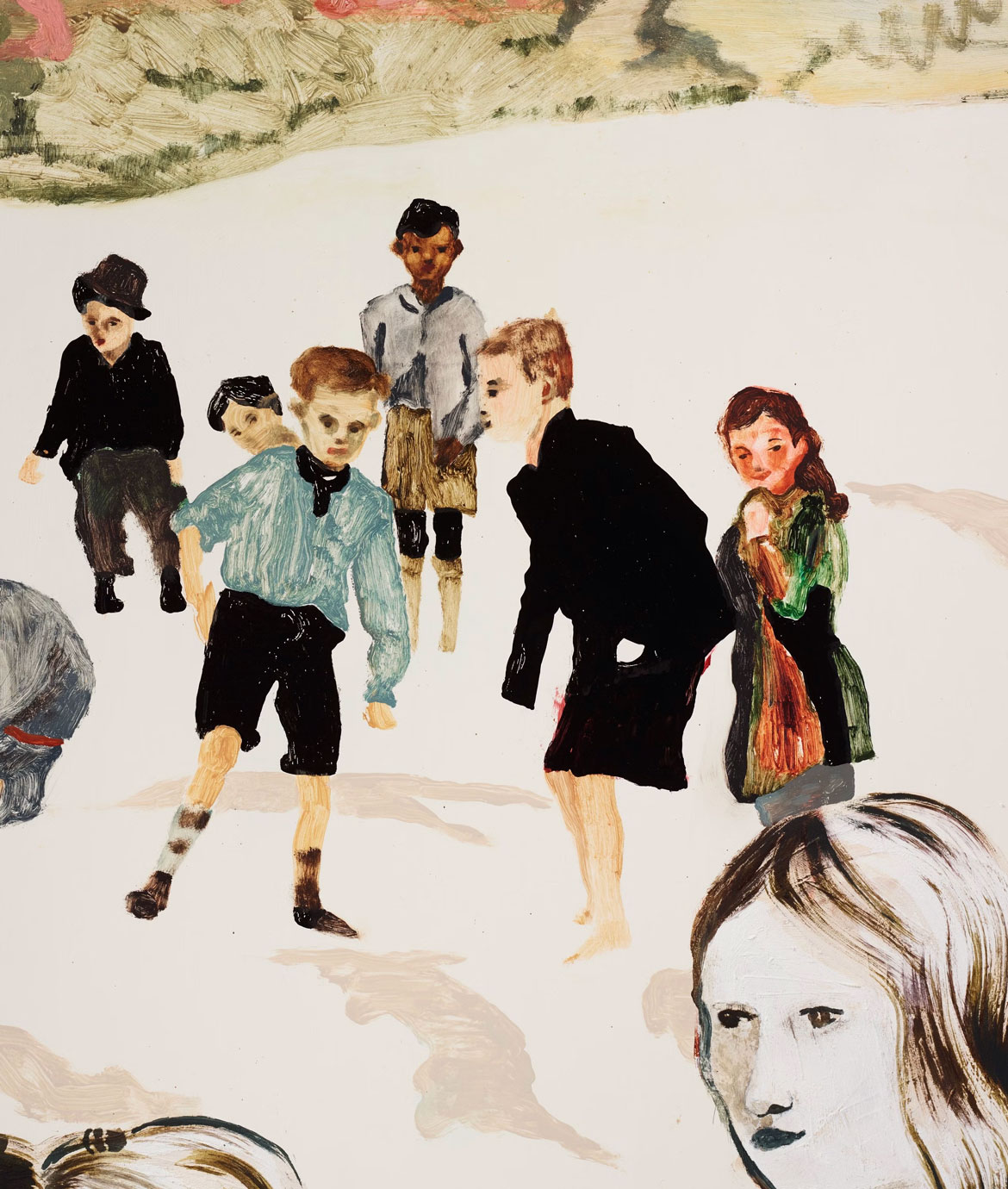
'All They Had To Do Was Dream' by Mamma Andersson is one of the many highlights being sold at Bukowskis Contemporary Art & Design this spring.
Contemporary Art & Design
Viewing: April 19 – 23, Berzelii Park 1, Stockholm
Open: weekdays 11 am – 6 pm, weekends 11 am – 4 pm
Auction live: April 24 – 25, Arsenalsgatan 2, Stockholm
To the work
Read more about the auction
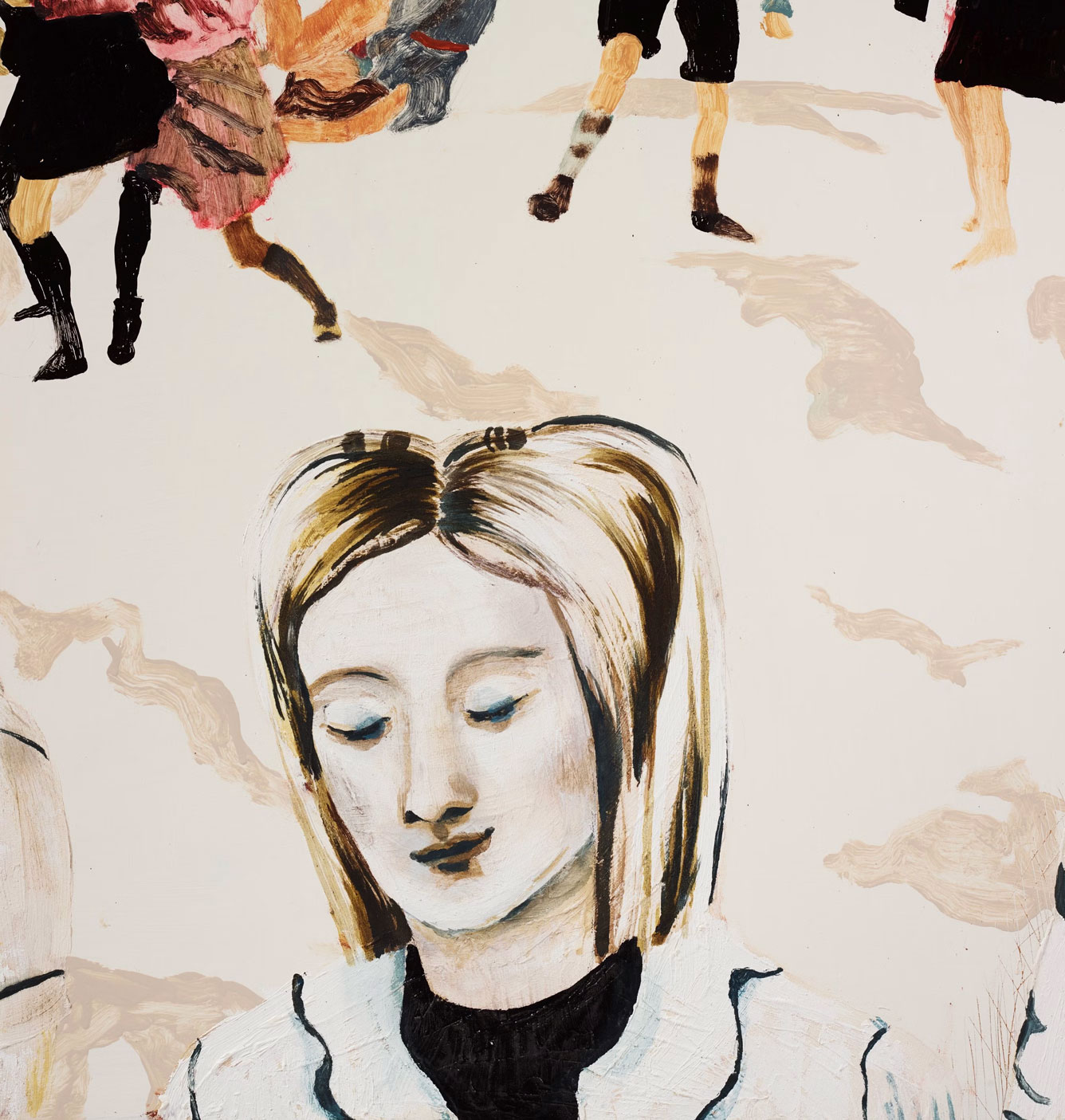
Requests & condition reports Contact specialist

Stockholm
Andreas Rydén
Head Specialist, Art, Deputy Managing Director
+46 (0)728 58 71 39

Stockholm
Louise Wrede
Specialist Contemporary Art, Private Sales
+46 (0)739 40 08 19

Stockholm
Karin Aringer
Specialist Photographs and Contemporary Art
+46 (0)702 63 70 57
